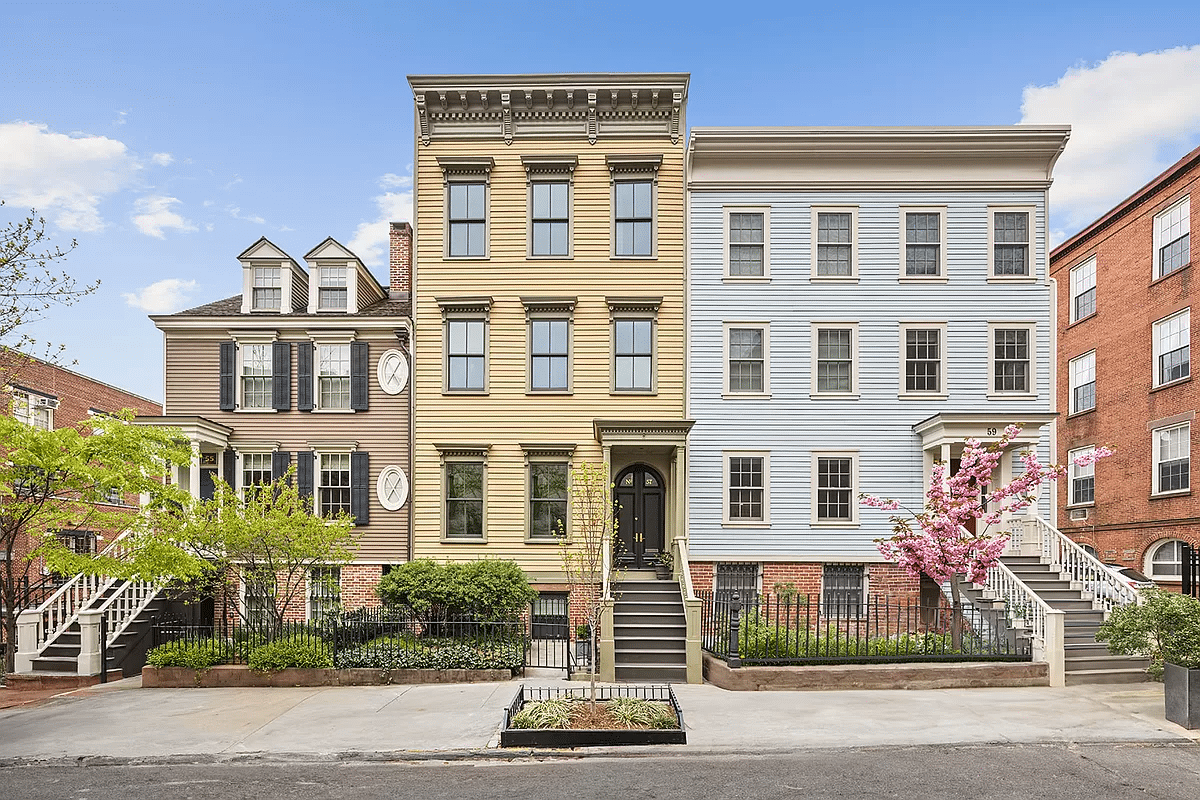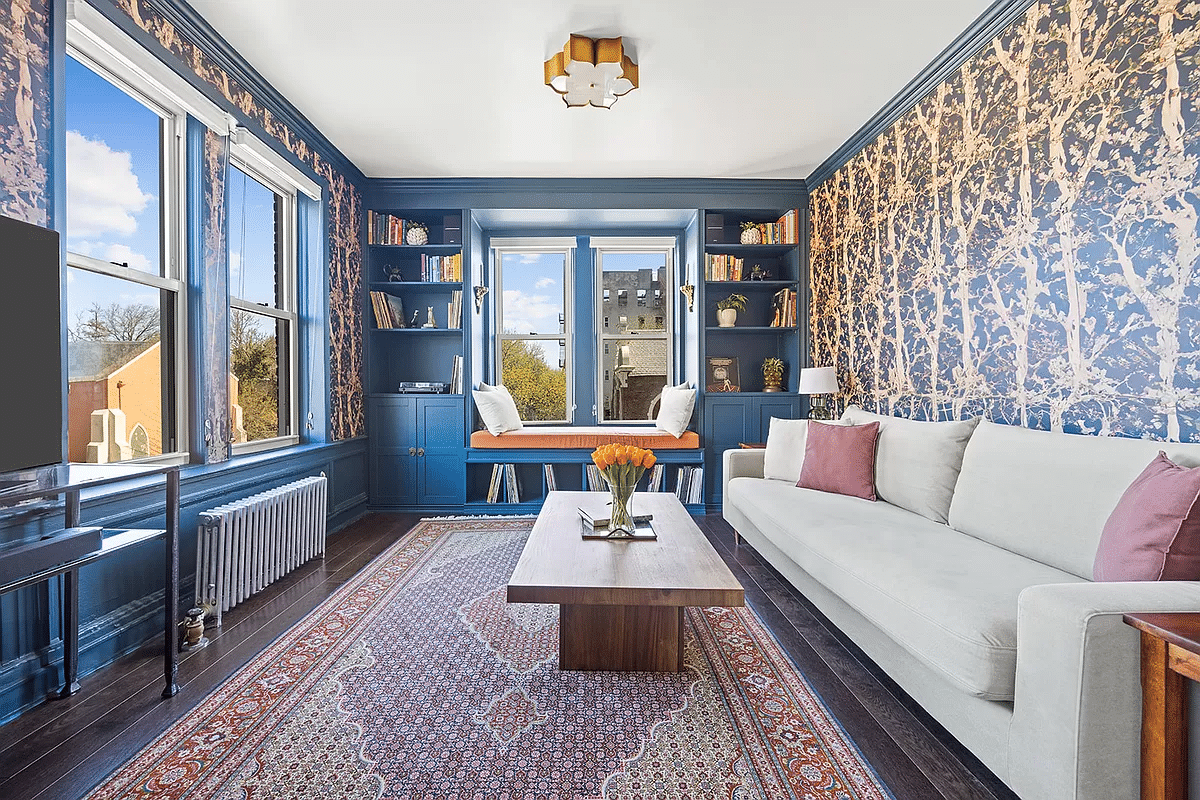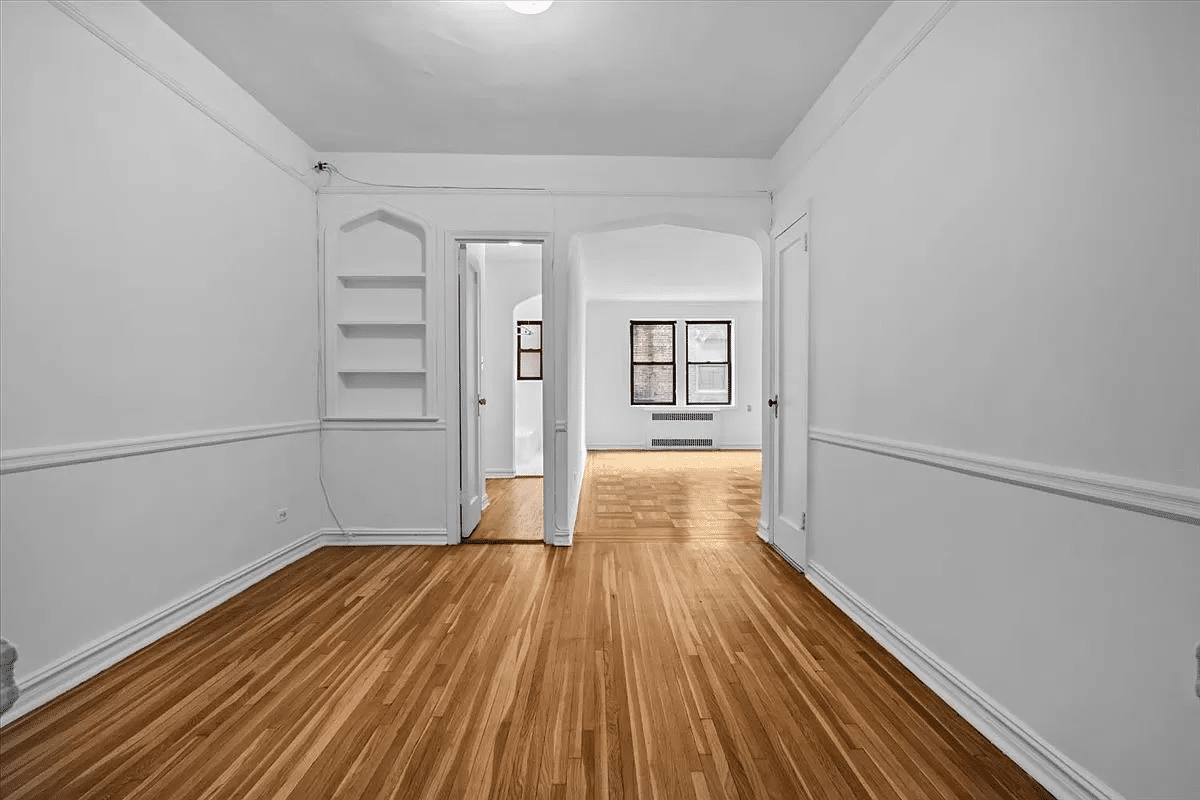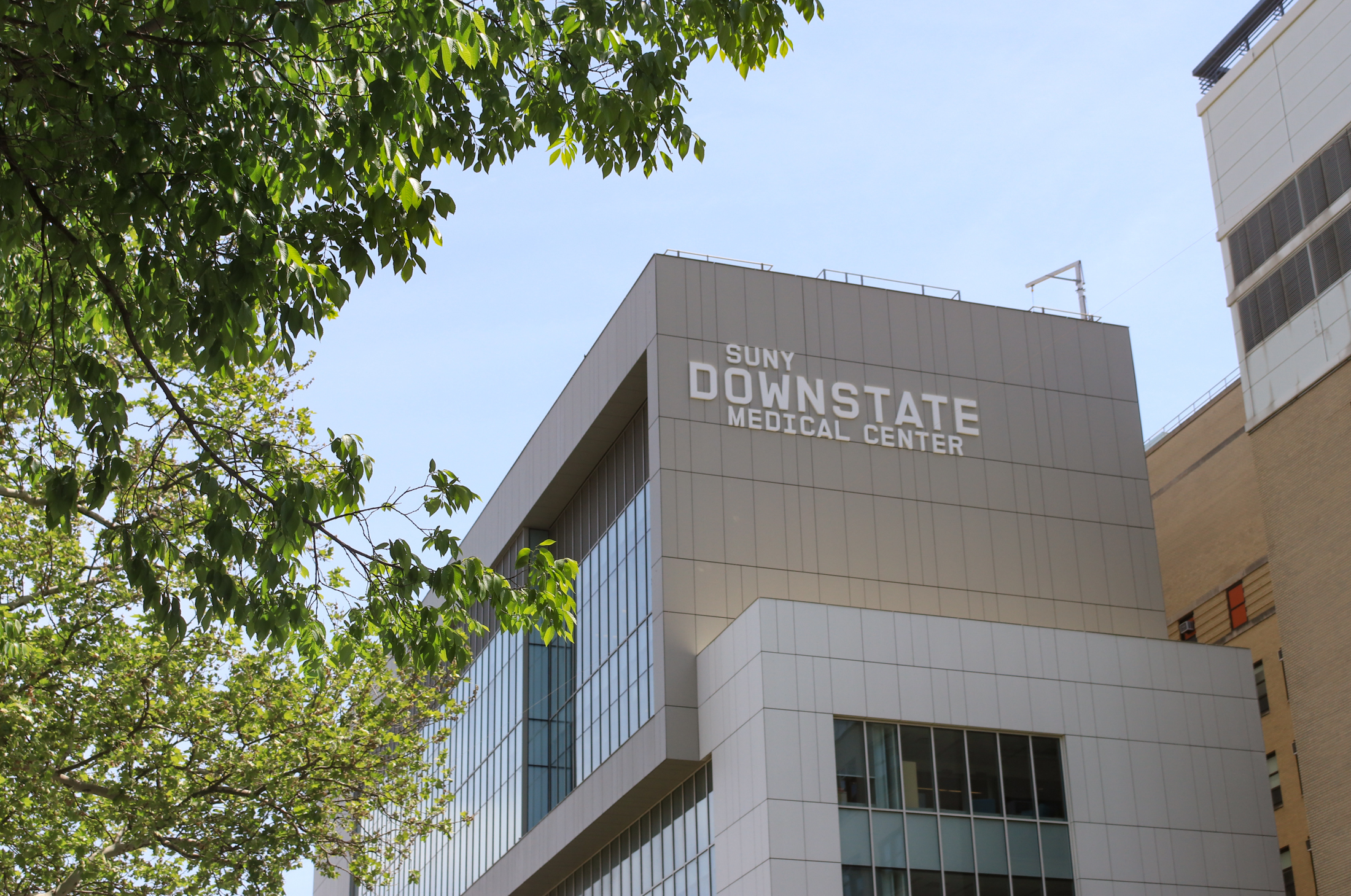More Angst Over Prices in Bed Stuy
A long piece in City Journal about gentrification in Bed Stuy travels some well-worn ground that will be familiar to readers of this blog and long-time residents of Bed Stuy but perhaps news to outsiders. In a nutshell, the point of the piece is that Bed Stuy gentrified before whites arrived, and now houses cost…

A long piece in City Journal about gentrification in Bed Stuy travels some well-worn ground that will be familiar to readers of this blog and long-time residents of Bed Stuy but perhaps news to outsiders. In a nutshell, the point of the piece is that Bed Stuy gentrified before whites arrived, and now houses cost $1,500,000 but shootings are still common. The story ends by wondering if gentrification will reverse itself and cites the case of a recent African American arrival who decamped to Kensington with his family.
“We were paying the rent of an upper-echelon neighborhood but had none of the security,” said the high school teacher.
One interesting fact the story uncovered: The much-touted 663 percent increase in the white population between 2000 and 2010 was actually due mostly to Hasids on the fringes of South Williamsburg, not hipsters or yuppies.
The story also quotes Bloomberg in the aftermath of a shooting that paralyzed an 11-year-old girl: “You have a right to live in Bed-Stuy and not have bullets whiz past your head.” That’s a nice sound bite, but we noticed that when a shooting occurred near Carroll Park, the police set up shop there; when the same thing happened in front of Saratoga Park, the police said there was no need for any extra police presence.
Meanwhile, the Real Deal looked into the details of who’s buying in Bed Stuy and found that 73 percent of sales of houses under $550,000 went to investors. “It’s tough out there for a Brooklyn buyer looking to land a modestly priced townhouse,” said the story. “But in the gentrifying area of Bedford-Stuyvesant, private buyers face even stiffer competition than elsewhere in the market for homes and small multi-family properties.” Flippers have been buying wrecks in all-cash deals for a long time, of course, but now the market is more competitive because the potential returns are higher than during the bust. An interesting tidbit: The story said that sometimes the price on the books isn’t the real price because buyers sometimes pay additional cash under the table to avoid tax.
Where do you see prices — and gentrification — in Bed Stuy heading next?
Bed-Stuy’s (Unfinished) Revival [City Journal]
Investors Are Behind 73 Percent of Bed-Stuy’s Cheaper Home Sales [TRD]
All Cash Investors Beating Buyers of Townhouses in Brooklyn [Brownstoner]








I’m of Puerto Rican descent and I was born and raised in bed stuy. I want nothing more than for all this gentrification to disappear and for the neighborhood to be beautified and fixed up for it’s long time residents. Call me racist if you want but I just can’t get over the fact that my neighborhood and its people weren’t worth a damn to be fixed up until whites with money became interested in it. Fuck these white developers and fuck our white city and state politicians for fucking us over like this. I’m now newly separated and living in a cramped little room with 2 children in a relatives apartment because no one will rent to a single mother with kids who doesn’t take home a shit load of money and doesn’t have a perfect credit score. And affordable housing? Well there isn’t enough and it is not easy to obtain. I KNOW this is the way many long term residents feel and we are as powerless as “the south side” (Williamsburg) was against this thing. I’m a real victim of bed stuy gentrification and it’s fuckin scary…..
I think this NYTimes opinion piece is somewhat timely:
http://opinionator.blogs.nytimes.com/2013/10/05/rich-people-just-care-less/
Me too. But a childhood in West Philly made this seem normal.
That being said, the speed at which Bed Stuy has appreciated is abnormal and unhealthy for everyone.
I mean they had the ability to move where (and when) they pleased. I mean they had options. If you look at the development of city’s over time from an urban economics perspective, the “inner-ring” suburbs and “outer-ring” suburbs, you needed to have means to build a house from the ground up and move on. Even if it was viewed negatively, it happened. And it’s effects were real. I don’t think poor people were getting up and building homes in suburbs that had regulations like minimum lot sizes and certain rules put in place to keep certain people out.
We may have different definitions of gentrification, or you may just be viewing the surface – it’s just about money – but those economic factors have social consequences not measured by a dollar amount. Whether you believe it should be about race and displacement I guess is ok when you are not on the receiving end of it. I guess it all depends where you stand. And honestly, you can feel however you want, but I don’t think I am telling you to feel bad. But at the same time, while you reserve the right not feel bad, you should not be excoriating a community that wishes to preserve itself just because you think you will “lose out” (zero-sum) in some way. Why should they feel bad about caring about their community?
Lastly, on your last point, the readership of “Our Time” magazine is geared towards a particular readership. Actually, I’m not quite sure what you are offended by?
What does they left because they had the means mean, you assume? They were poor immigrants as poor as the average bedstuy population…. they went to cheaper land to have more space and flee the percieved evils of the city. Actually if you read literature and research from that time the flight was viewed negatively as fleeing areas with imigrants and minorities. Now the rearrival does as well. Gentrication should mean rising prices and wealthier population not white and black. Black yuppies most people say nothing too. Although I don’t think anyone who moves to an area where they can afford to buy and like living should feel bad and I ccertainly don’t. I am insulted that you tHink I should…. most discriminatory comments happen within the same race and community obv, I would be less offended if it was a private conv and not public however.
Bk33 – I don’t think that is true. There is another word: it’s “unpleasant”. Gentrification as an idea is unpleasant to those who feel implicated because they may not necessarily want to have that effect. That is fine – I think there are a number of people above who have emphasized (as well the article) being part of the neighborhood and understanding what you are moving into. Gentrification has more to do about economic influence/power and how it disrupts communities, culture and those structures.
Let me reiterate what I’ve said earlier. Not viewing this conversation in context as a internal black community conversation (whether you feel that community should exist is not the point here) will cause confusion. They are having a conversation about the black community – that is all. They do not need to address nor do they white people in this conversation. It’s a question of how does a community respond in the face of change. The reality is there are 1,500 a month apartments that people can’t afford. If a community is to be maintained and it is important to them, how do they respond to that? I think all communities need the space to have these conversations – and it doesn’t have to be zero-sum. The fact that your parents and their generation moved to suburbs means their economic ability to do so and that you can move back (again – you have a choice and options) means your economic ability and desire to do so. The community and its members are at the whims of that decision.
I think BS is a friendly place as well. These are important conversations and I’m happy there are mature and thoughtful people with differing viewpoints who can have the conversation without resorting to name-calling and personal attacks.
I think that there is a difference between calling something discrimination and stating a fact. I don’t understand how people are being discriminated against to be honest, and I think that word, just like the word “racist”, needs to be used a bit more responsibly. We can’t ignore the fact that these are general trends that are happening – more of a 10,000 foot view versus an individualist view. I’d add that just because the identity of these people are being presented or more clearly race is being identified doesn’t mean its discriminatory. It is the identity of a general trend. The underlying point I believe is these communities (mostly black and with large amounts of poor folks) do not have the economic power of the people who can make the decision to come and go as they please. Historically, they were able to leave when it suited them, and they are able to come back. Poor people do not have that option. They are at the mercy of people with economic power. It follows that the very nature of the neighborhood is tied to that economic reality. The poor, mostly black people can be pushed out of neighborhoods where they built structures to deal with that reality as needed by those with economic power. I do not think this is just an abstract or individualistic thought exercise. I think the effects are very real.
I agree with this as well. I often think people use the word or idea of gentrification to be racist against white people, to keep white people out. To MM’s earlier point of the cheapening of the word racism, this is not racist like the holocaust or segregation, more of an annoyance… but there is no other word. For instance Vann begins,”Well, we also are seeing an increase of young black professionals who bought homes in Bed-Stuy, increasing the percentage of ownership which is very, very important.” Here it seems to me he is talking favorably about black yuppies transplanting into BS but he says he only wants enough white people to keep the neighborhood mostly black. This seems to me he is not worried about pushing poor people out or keeping locals here, he is concerned about that the color is black. Although I want brooklyn and BS to retain a large Black population and it wouldnt be the same without them…. fights or comments against gentrification should be focused on keeping the existing community and poorer families not just color. Jay said earlier its not the black residents fault there was a white flight, its not my fault either that my parents and their generation left for the suburbs…. the suburbs suck…. the real problem is people who come in and try and change the area to suburbs, that I think most of us agree. A white yuppy vs black yuppy transplant shouldn’t be favored. Any way I don’t know if anyone is reading this any more or I am talking to my self, but thisvis a thought I have not just from Vanns comment but also sitting at big daddy kane concert or dead pres concert, everybody has some comment. Finally these blog and leader comments probably make it look to outsiders that there is crazy tension around here … but to them, there is not. BS as stated by other posters is one of the friendliest communities I have seen.
Sorry for the late response, I was at work and didn’t see this until now. I think the comments were really what drew me in, but the article I felt had a discriminatory undertone throughout the entire thing. Like I said earlier, I have no problem with Vann wanting Bed Stuy to retain its black history and culture.
“Given this history, it’s not hard to see why some locals glower at the arrival of bike-riding, parent-dependent white musicians and creative couples pushing toy-bedecked strollers. These newcomers, priced out of Brooklyn’s Park Slope, Fort Greene, and Clinton Hill, have made $1,500-a-month one-bedroom apartments and $1.5 million houses the new normal in the once-cut-rate neighborhood. Unwittingly, they’ve pushed low-income locals out of places they called home back when no one wanted anything to do with their neighborhood.”
That is the most glaring example I can find of saying that white gentrification is pushing people out while not including these “buppies.” Couldn’t the author easily have just excluded the word white and made the same point.
Maybr you don’t agree with me about the attitude about the article l. I think I’ve also been influenced by other articles I haven’t about Bed Stuy where commenters have seemed unfairly anti-Stuy. Everyone is of course entitled to their own opinion and every neighborhood gets its’ share of haters but it seems Bed Stuy gets hated on more than most.